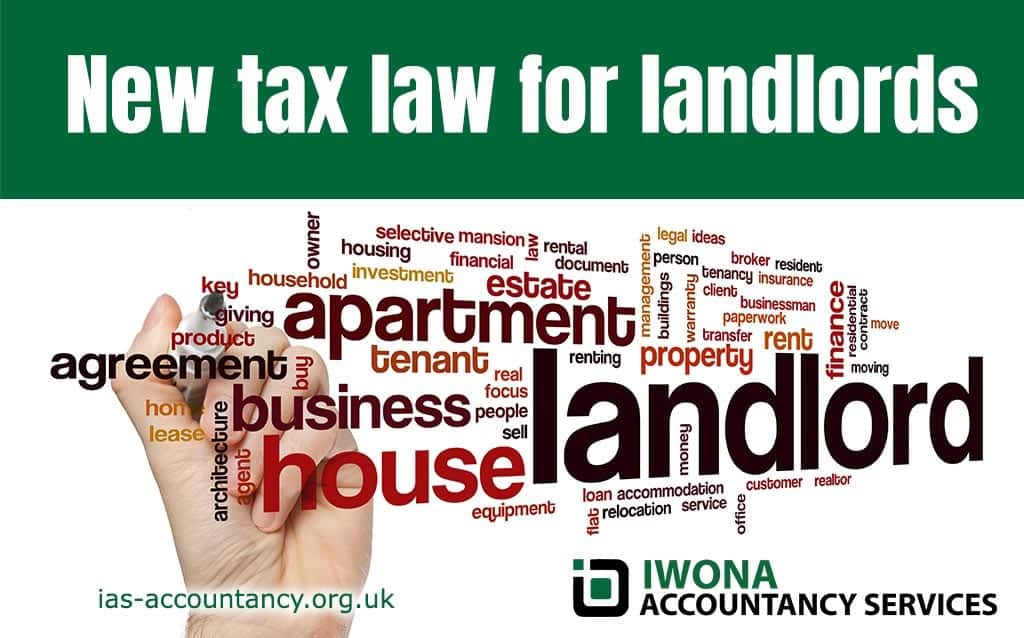New tax law for landlords
In April 2017, new tax law was introduced, unfavourable not only to the buy-to-let industry but also to others e.g. tenants. The government decided that it will no longer be possible to deduct interests on the mortgage of rented properties as a business expense. This change can affect the profitability of many small landlords. Solutions that many may adopt is registering a limited company.
Investing and renting properties is seen as a safe haven by many, it is also commonly assumed that such business requires very little input. This is not always the truth, as landlords must constantly keep up with the legislation that changes frequently, on this occasion the change is for the worse.
Higher taxes for landlords
Discussions about the changes to tax law regulating property renting were taking place since 2015. In 2016 the duty stamp on all buy to let flats and houses has been increased to 3%. It was then when the removal of the mortgage interest as a tax-deductible expense has been mentioned for the first time the details included staging of the removal over four years, between now and 2020.
Changes in the tax legislation
In April 2017 tax regulation for the landlords was amend. Until then landlords were paying the income tax on profits from renting the property reduced by the amount of the expenses sustained, mortgage interest was a deductible expense. Subject to the income threshold the relief was either 10, 20 or even 45%
Phasing out of the relief
New tax legislation on income from rented properties means that landlords will have to pay tax on the full value of the rent, regardless of the paid mortgage interest rate. The relief to deduct the mortgage interest will be phased out in stages over the next four years. In the tax year 2020-2021, effective tax rate for landlords will be 20% of the turnover as by then very few deductible expenses will be allowed.
Losses on the Buy-To-Let market
New regulation will be particularly hard on those taxpayers offering flats and houses for rent, that pay high interest rates on mortgages and pay additional taxes. Surprisingly the rich will be least affected as they are the group who can afford buying properties without taking on mortgage.
The rent is on the rise
The changes might negatively affect landlords’ development strategy and their retirement plans. To counteract sustained losses, they might slowly increase rent on owned properties. The interest to buy a house or a flat for rent might also reduce.
Higher fines for landlords
Changed tax law is not the only bad news for the buy-to-let market. Starting last tax year fines that can be given to landlords have been increased up to £30 000 for breaching regulation in such areas as overcrowding or avoiding responsibilities. It is hoped that with this change the standards of the properties will increase, as well as their availability and rightful protection of tents.
Limited company – solutions to the changes
To squeezed income caused by removal of tax deductible mortgage interests, many landlords decide to incorporate limited companies. By doing so they can retain the right to claim the mortgage interest in full as an expense for tax purposes. Moreover, this is not the only benefit, taxation on such income is currently at 19% and is going to fall to 17% in 2020.
Trusting property accountant
Setting up property portfolio as a limited company is right solution to many landlords, however, this change of legal structure can be confusing and difficult. In particular, issues relating to accountancy and tax calculation can be the most troublesome for landlords. This is why many trust professional property accountancy services with their affairs.
Make most of the changes
New legislation amendments introduced by the UK government might have negative effect not only on the buy-to-let market but also can result in lower demand on mortgages and could reduce supply of affordable housing for rent. This can have wider implications of stagnation in construction industry. Registering limited company as a landlord, can support growth of property portfolio and be tax efficient. It does, however, require careful planning and finding effective property accountant.


